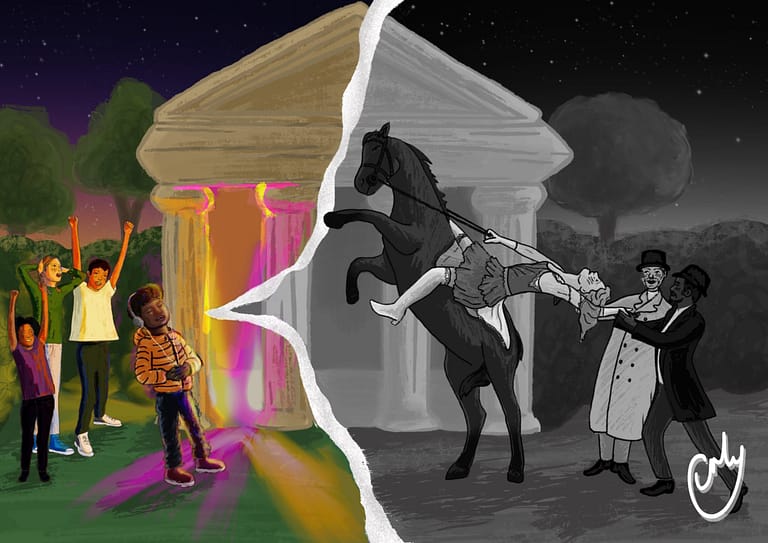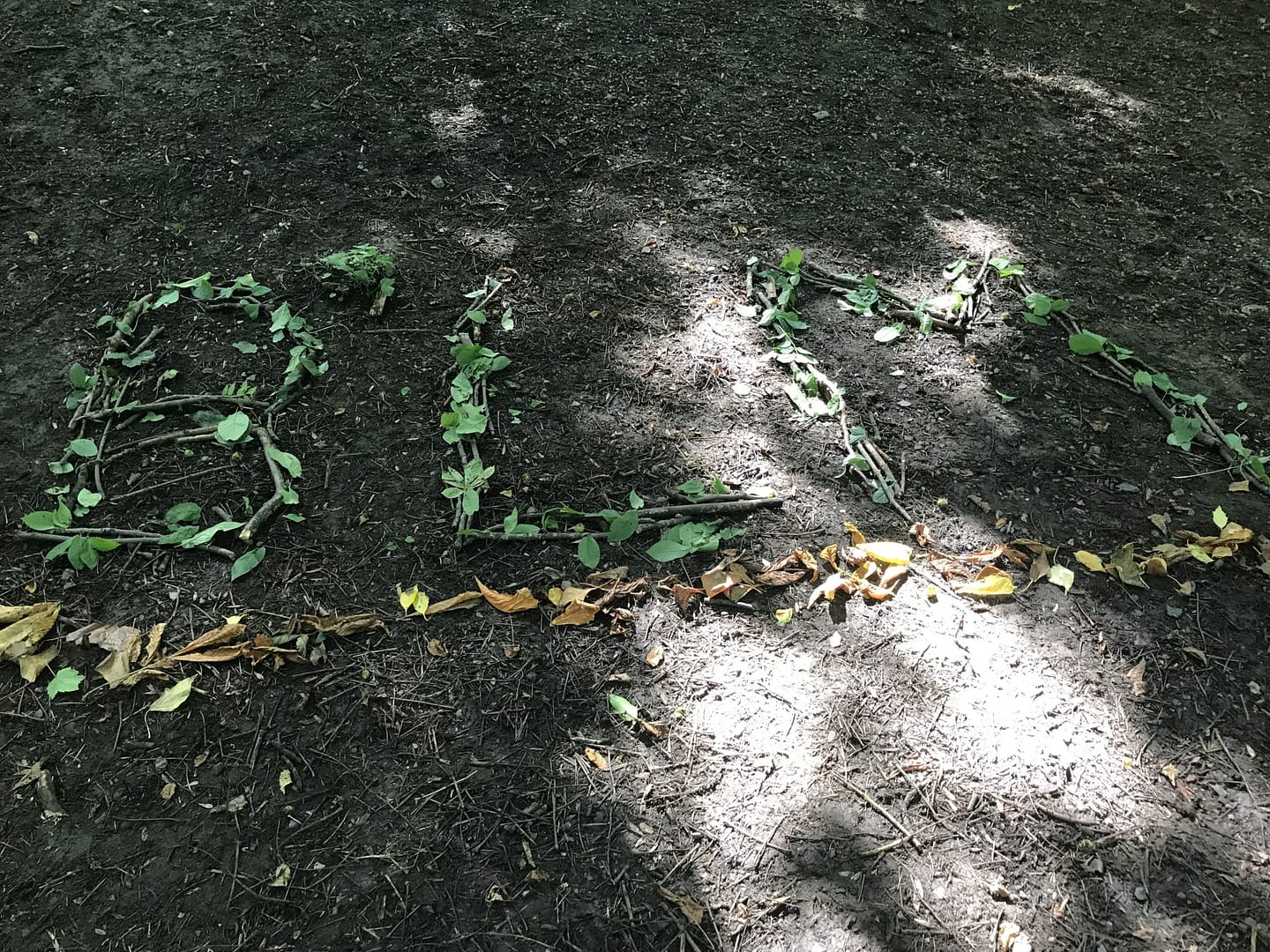
Curriculum:
Aim of Work:
What did we do?
This case study outlines our approach to delivering local history workshops for schools, which can be tailored to your local area and green spaces.
We regularly deliver these types of workshops in locations across South Yorkshire, and share two examples below.
Much of history is carved into the landscape around us, from the glaciers that the Stone Age peoples travelled across, to the hill forts overlooking our towns and cities to the impact of the Industrial Age on our landscapes. Growtheatre specialises in using drama and Forest School approaches to bring outdoor green spaces to life, to teach KS1 and KS2 History – to help children make connections between local, regional, national and international history.
Our intention is to bring an historical period to life by setting our workshops in the outdoors – a local wood, green space or simply your school field – so that pupils make the connection to the land and early history. We love to work in local sites of significance and have worked at Ecclesall Woods, Sheffield (Stone Age, Romano Britain, Industrial Age); Clifton Park, Rotherham (Stone Age); Wincobank, Sheffield (Iron Age, Romano Britain); Tickhill, Doncaster (Romans); High Riggs, Stannington (Early Industrial Revolution); Rivelin Valley, Sheffield (Industrial Age); and Sheffield General Cemetery (Victorian Age), but are equally comfortable on a school field.
We introduce pupils to a character from that time and, together, explore what life was like in in that time period. We do this by combining character, drama and Forest School approaches; a couple of examples of this are as follows:
1. Ecclesall Woods Timeline:
Series of four stand-alone workshops that explore the significance of Ecclesall Woods over time: Stone Age, Romano Britain, Medieval England and the Industrial Revolution. There are significant archaeological finds in Sheffield’s ancient woodland that pupils will visit, including a Stone Age cup and ring stone, a Romano British hill fort, Q-pits and charcoal platforms.
In each workshop, pupils will meet a character from that time period who will share what life was like and encourage them to explore aspects of daily life through drama activities, discussion and Forest School activities such as making a bow and arrow or creating charcoal.
2. Sheffield Adventure: The Show Must Go On!
Commissioned by Create Sheffield, we co-created The Show Must Go On! audio trail and interactive drama workshop with local schools and community groups, based on the local history of four different Victorian performers who are buried in Sheffield’s General Cemetery. Pupils discover Sheffield General Cemetery’s incredible show-people, from circus performers to child stars to famous Shakespearean actors. Children will hear some amazing stories that paint vivid pictures of crazy stunts, performing animals, children in theatre, inspirational struggles and breath-taking calamities. They get a glimpse into the world of Victorian performers, Sheffield’s arts and culture scene, and what life was like in the entertainment business in the past. It explicitly explores working conditions and lack of rights in Victorian times for marginalised people, children and animals, and the events that shaped the changing of laws, which still has significant resonance today.
- Drama activities include debate, drama and performance
- Forest School activities include: interpretation of one of the stories using nature-based art practice and sketching
What impact did the project have?
Teachers and school staff often remark that they did not know the historical significance of the area local to their school, and are able to understand the resource available to them on their doorstep as a result of their participation.
There is impactful experiential learning for pupils in the combination of story, learning through working with their hands, active discussion and drama, which satisfies a variety of learning skills.
Children having the opportunity to discover unknown local history and stories in familiar places is memorable, surprising and exciting, making history more relevant to them.
Pupils made connections between the past and present day due to having space to debate issues and questions that arose during the workshops.











